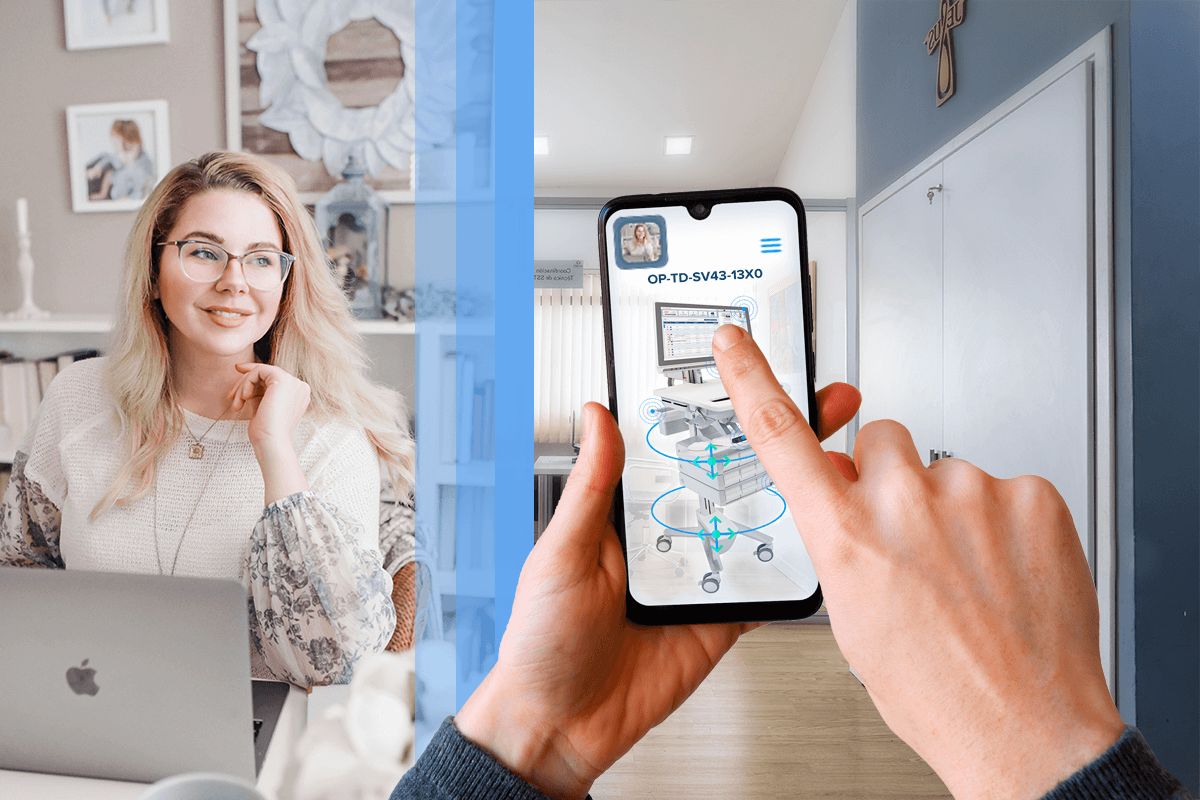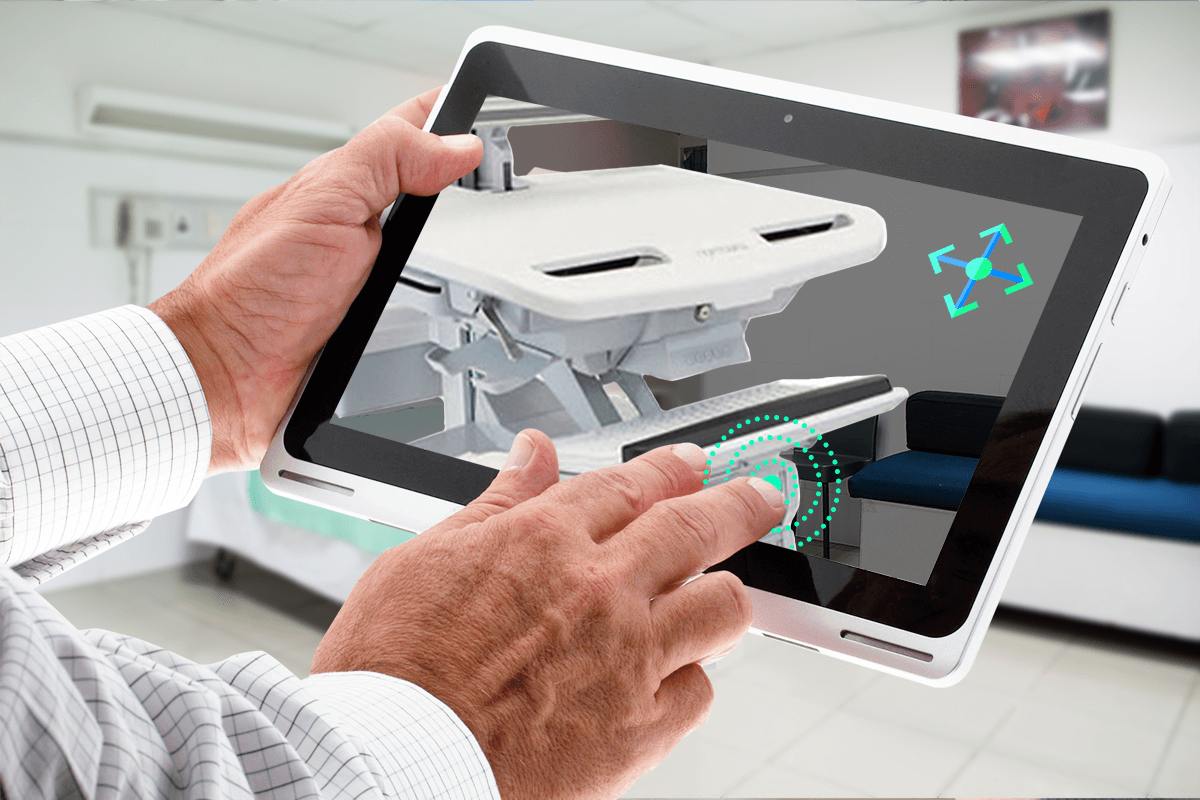The market of healthcare hardware is growing steadily. However, it still remains sensitive to pandemic restrictions. To the healthcare companies that sell workstations, medical devices, or medical screens, it is crucial to have the ability to demonstrate the products to potential customers. Seeing is believing in many cases, and the niche of medical hardware is not the exception.
Using augmented reality and mixed reality applications for remote instead of the traditional “visit our website” approach can increase sales dramatically.

Using 3D Models of Tangible Goods and Selling Them via AR/MR Can Increase Sales by 21%
Does AR/MR work like a magic pill for sales? Sort of. For example, according to Shopify, using 3D models of strollers, Bumbleride improved a conversion rate by 33% and increased time on pages up to 21%. Rebecca Minkoff’s brand saw the conversion increase by 250% on her product pages after introducing 3D models of bags. The results can be easily extrapolated to any tangible products from the healthcare industry.
Augmented reality apps for remote sales are the most familiar and common. All that is required from a client to be able to use the power of augmented reality is a smartphone. By downloading the app, a user gets the chance to look through all the equipment for sale in 3D mode, which means more interaction, more accuracy, and more chances to buy.
The augmented reality apps created by Softengi are also enhanced with the telepresence element, meaning that a sales manager can consult the potential buyer in parallel.
Mixed Reality is also an effective tool for remote demonstration of any physical objects. However, for Mixed Reality apps, glasses, such as HoloLens, will be required for this purpose.
Using mixed reality glasses, it is possible to preview any 3D object in the real environment, inside the doctor’s office, for example. Mixed reality apps provide users with a higher level of interaction with the object thanks to the hands-free approach.
For numerous hardware producers, offline sales have become a real challenge with rapidly changing pandemic circumstances and unexpected lockdowns. Selling to other countries is also hardly possible taking into account the complexity of the transportation of products.
Luckily, augmented and mixed reality applications, with their possibility to visualize physical content digitally, can be more effective and increase sales significantly.

What are the 3 Main Benefits of AR/MR for the Sales of Medical Hardware?
- It is possible to demonstrate any object that is about to be sold in full size, in different configurations, variations, and colors. It is easy to check if the product size fits the size of the room. Showing volumetric objects is often more persuasive and more engaging for clients than just showing photos on the screen;
- The possibility to show and eventually sell products online to any customer in the world. Before the online era, the target audience for products was limited by the distance from the office. Today, in the post-covid era, it is not limited by time or location.;
- Interaction with the object engages the potential client and makes the process of sales easier and more efficient.
Augmented and mixed reality applications can be used interchangeably for one and the same purpose: the demonstration of objects virtually. After all, with the introduction of the concept of Metaverse, it has become clear that part of life will pass inside the virtual environment. For any company selling tangible goods, it is a sign that it is high time to create 3D models of the products they are selling and start offering them to a wider target audience in a more engaging way.





